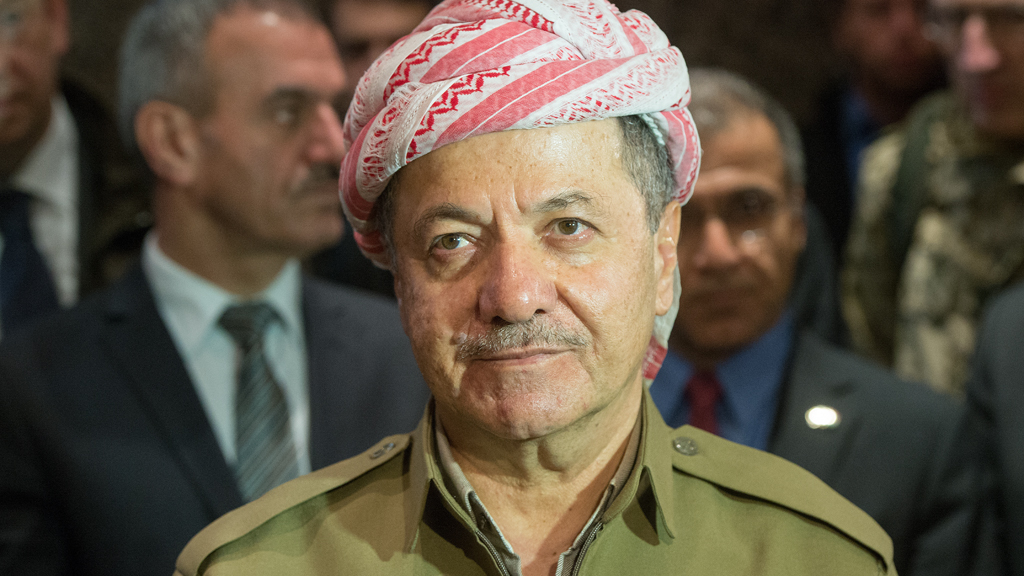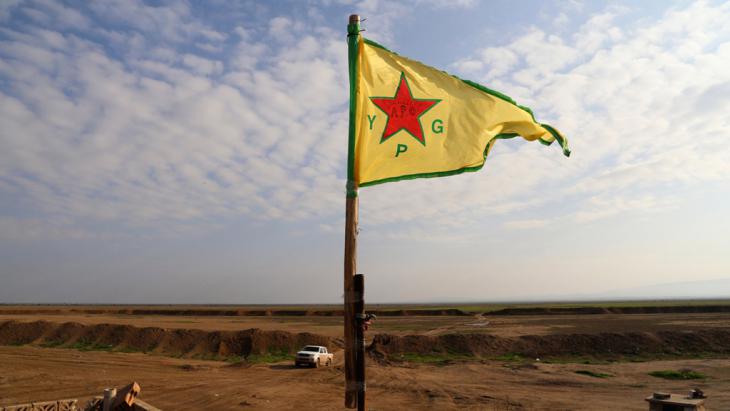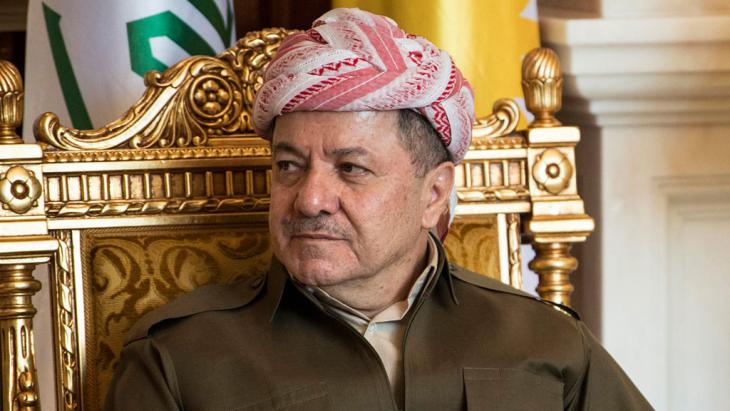Barzani′s sinking ship

By the time Kurdish President Massoud Barzani made his way to Germany for the Munich Security Conference, 35,000 of his countrymen had already preceded him. The last six months have seen a veritable exodus from Kurdistan. Instead of travelling to Germany "first class" in a private plane like their president, however, the Iraqi Kurds set off on foot via the Balkan route or by ship across the Aegean Sea.
No matter where you look today in the autonomous Kurdish regions in northern Iraq, whether in Erbil, Dohuk or Sulaimaniyya, the people there want nothing but out. The Kurds are abandoning Barzani. The Kurdish television station KNN noted cynically that the fish in the Mediterranean are now learning Kurdish, showing a boat allegedly filled with refugees from Sulaimaniyya that capsized off the Greek island of Lesbos. 33 of the passengers are said to have drowned – all Kurds from northern Iraq.
When Barzani noticed people beginning to flee the country, he ordered the long overdue re-conquest of the town of Sinjar. It had been under the control of the IS – the terrorist militia Islamic State – since August 2014. The terrible fate of Sinjar's mostly Yazidi inhabitants dominated headlines in the world press for weeks: trapped in the mountains without food or water, the women abducted by IS fighters, the men murdered. There was talk of a Yazidi genocide. Barzani's Peshmerga came under fire for not being able to protect the town and its nearly 40,000 inhabitants.
When the former Kurdish freedom fighters finally entered Sinjar triumphant in early November, the 7,500 soldiers found a town that had already been laid to waste by heavy American bombing. There was no trace left of the IS. Barzani mounted a hill in the Sinjar Mountains the very same day to declare the victory of the Peshmerga over the IS. His announcement set off a wave of patriotism.

More Kurdish flags than had been seen in a long time could be seen waving all around the ancient citadel of the Kurdish city of Erbil. A motorcade with much honking of horns filled the streets, accompanied by patriotic songs. Just like the bright yellow sun in the middle of the Kurdish flag, the faces of the people were beaming as they gathered in the market square of the city of 1.2 million to celebrate "their" victory over the IS. But the rapture did not last long and the patriotic glue holding the Kurds together soon dissolved again. Now, they are once again packing up their belongings and making their way towards Europe.
Discontent with the political leadership growing
The Kurdish leader recently launched a further attempt to hold onto his people. At the end of January, he had his advisor Kifah Mahmoud announce that a referendum on the independence of Kurdistan would be held before the presidential elections in the USA. The Kurdish people should decide whether they want to have their own state or remain part of Iraq.
According to polls, the majority of the five million Kurds in Iraqi Kurdistan are in favour of a state of their own, independent of Baghdad. But Barzani's announcement of a referendum is not new. He has already promised the same thing three times previously, when conditions were better than they are today. So why should he really go through with it this time, many Kurds in the region are wondering. And how will it change anything if the people express their will? "Those at the top do what they want to anyway; they don't care about the people." Discontent with the political leadership is steadily growing.

The reason for the mass exodus from Iraq Kurdistan is therefore not only down to the threat posed by the IS, although the militia has dug itself in just 30 kilometres outside of Erbil and 40 kilometres from Dohuk. The military positions have not changed much for one and a half years now – since August 2014.
Qaraqosh, the formerly Christian town halfway between Erbil and Mosul, is also still in the hands of jihadists, as is Tilkef on the plains of Nineveh near Dohuk. A mere 200 kilometres separate Sulaimaniyya from the IS "caliphate". And yet, except for a few refugee camps, which reflect the reality, none of the fear that is rampant elsewhere can be felt in the second largest city of Iraqi Kurdistan. Yet people are leaving Sulaimaniyya in droves.
No work, no prospects, no future
It is mostly the younger Kurds who are turning their backs on their homeland. They say that Kurdistan can offer them no work, no prospects and no future. Hopes for reform have been dashed and the integration of returnees has been a failure.
The situation is further exacerbated by a major political and economic crisis. In the last four months of 2015, civil servants' salaries went unpaid. And the Kurdish regional government plans to pay only 25 percent of January wages. As over 70 percent of employees work in public service, this applies to the majority of the population. Power outages are the rule, not the exception. Infrastructure projects are on hold and foreign oil companies have left the region because they were not paid either.
A deep rift between the Kurdish region and the central government in Baghdad has put a stop to transfer payments. It all began with the decision by Kurdistan's regional government exactly four years ago – a decision bordering on hubris – to build its own pipeline to Turkey in order to sell the oil and gas produced in Kurdistan on the world market on its own – a first step towards economic independence from Baghdad.

At the same time, however, Kurdistan still expected to keep receiving the same 17 percent of the overall Iraqi budget. The Iraqi government, however, ties these payments to oil sales, the volume of which has not yet been agreed on. Since the IS blitz in the summer of 2014, Baghdad has stopped payments to Erbil altogether.
Reverting to authoritarian structures
It is amply evident by now that the region is unable to finance itself. Ninety-five percent of its budget comes from a single source: oil. Although Barzani and his regional government were able to ensure stability and peace in Iraqi Kurdistan after the fall of Saddam Hussein, attracting foreign investment and establishing a booming real estate sector, the development of other sectors of the economy such as agriculture, industry and tourism has been utterly neglected.
This short-sightedness is now coming home to roost. The fact that the Kurdish president refuses to step down, as required by the country's constitution, is only making matters worse. When demonstrators in Sulaimaniyya demanded more democracy and a parliamentary system, violent clashes ensued. Barzani accused the opposition party Goran of sedition and unceremoniously threw its members out of the regional government. The next day, he refused the head of the regional parliament entry into Erbil and thus stopped cold any representation of the people. The Iraqi Kurds, who like to see themselves as pioneers of democratic development, are now reverting to authoritarian structures.
As a final resort to put a stop to Kurds fleeing from Kurdistan, Turkey introduced a visa requirement for Iraqis a few days ago. The traffickers in Dohuk, Erbil and Sulaimaniyya quickly responded by offering Kurds new ways to reach Europe. Only now it's going to cost them that much more.
Birgit Svensson
© Qantara.de 2016
Translated from the German by Jennifer Taylor
